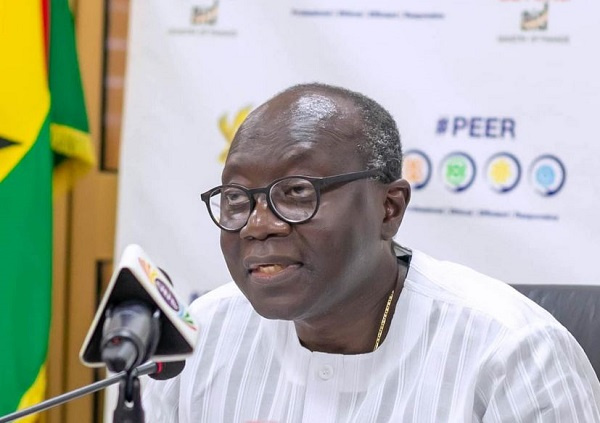Ghana faced a formidable challenge in 2022 as its public debt service burden devoured more than half of its domestic revenue, according to the Institute of Statistical, Social and Economic Research's (ISSER) 2022 State of the Ghanaian Economy report, released on October 31.
The ISSER report, quoting alarming statistics, highlighted the dire situation: "High debt service, ¢0.56 of every ¢1 of domestic revenue."
This unsettling revelation implies that a staggering 56% of domestic revenue was absorbed by the obligations of servicing the national debt in 2022.
Equally concerning is the revelation that external debt reached 55.3% of Ghana's Gross Domestic Product (GDP) by the end of 2022, surpassing the level of domestic debt which stood at 44.7% of GDP.
This marked a significant shift from the status quo since 2019 when external debt last exceeded domestic debt.
The report succinctly notes the significance of this development: "1st since 2019 of higher external debt!"
Overall, the report exposes a worrisome increase in public debt as a percentage of GDP, which surged from 64.5% in 2021 to 70.7% in 2022.
This remarkable rise in external debt is attributed to a combination of factors, including the adverse effects of global financing conditions, a decline in investor confidence due to credit downgrades, a loss of access to International Capital Markets (ICM), substantial capital flow reversals, and challenges related to domestic financing.
In its conclusion, the report rings the alarm bell, warning that the elevated debt service burden, coupled with the surge in external debt exposure during 2022, has significantly increased the risk of debt distress for Ghana.
Quoting directly from the report, it states: "DSA [Debt Sustainability Analysis] shows a high risk of debt distress" and underscores that Ghana's "solvency and liquidity worsened" during the year.
Latest Stories
-
Queenmother calls on President-elect Mahama to appoint more women in his government
26 minutes -
Atletico Madrid beat Barcelona to go top of La Liga
44 minutes -
Usyk breaks Fury’s heart with points win in rematch
46 minutes -
Ghana-Russia Centre to run Russian language courses in Ghana
6 hours -
The Hidden Costs of Hunger: How food insecurity undermines mental and physical health in the U.S.
7 hours -
18plus4NDC marks 3rd anniversary with victory celebration in Accra
9 hours -
CREMA workshop highlights collaborative efforts to sustain Akata Lagoon
10 hours -
2024/25 Ghana League: Heart of Lions remain top with win over Basake Holy Stars
11 hours -
Black Queens: Nora Hauptle shares cryptic WAFCON preparation message amid future uncertainty
11 hours -
Re-declaration of parliamentary results affront to our democracy – Joyce Bawah
11 hours -
GPL 2024/25: Vision FC score late to deny Young Apostles third home win
11 hours -
Enhancing community initiatives for coastal resilience: Insights from Keta Lagoon Complex Ramsar Site Workshop
11 hours -
Family Health University College earns a Presidential Charter
12 hours -
GPL 2024/25: Bibiani GoldStars beat Nsoatreman to keep title race alive
12 hours -
GPL 2024/25 Bechem United keep title hopes alive with narrow win over FC Samartex
12 hours

